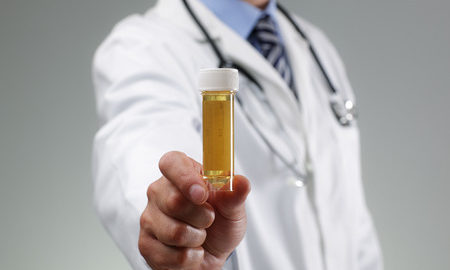Stem Cells Harvested from Urine by Case Western Researchers

Established cell lines and experiments in animals do not always mimic conditions in the human body well and results can be vastly different in actual human populations compared to the laboratory. Researchers at the School of Medicine at Case Western Reserve University have tried to overcome this challenge of developing a good research model by harvesting stem cells directly from urine.
Stem Cell Collection
Stem cells can be collected directly from a patient and can be grown in the laboratory into various types of cells. However, institutional review boards are not easy to convince when it comes to directly harvesting stem cells from patients, especially in children and people with intellectual disability.
Now, scientists at Case Western Reserve University have developed a pathbreaking technique to harvest stem cells from the urine and study them in the laboratory. These robust cell lines will be used to study diseases such as Down syndrome. The findings, published in the journal Stem Cells Translational Medicine, describe a noninvasive method to create research models for Down syndrome and other neurological conditions.
Stem Cells Harvesting from Urine
The scientists were able to create induced pluripotent stem cells (iPSCs) from cells obtained from the urine samples of persons with Down syndrome. Lead author and Professor of Pediatrics and Psychiatry, Alberto Costa, MD, PhD, says the new method is a considerable improvement on previous iPSC harvesting technologies. This is an important step in developing cell-based platforms for human drug testing to improve quality of life for Down syndrome patients.
Ethical Challenges of Stem Cell Harvesting
Prior techniques for stem cell harvesting involve skin biopsies, which are minimally invasive, but research ethics committees and institutional review boards are known to reject approval for widescale testing of this type in patients with intellectual disability. In addition, such procedures are often rejected by Down patients or their family/guardians. This means there is a very limited availability of iPSCs obtained from Down syndrome patients and banked for research. The new method of harvesting stem cells from urine will help investigators build stem cells lines for future research.
Interestingly, the stem cells harvested from urine have been found to be more stable than those obtained from the skin. Skin stem cells are prone to DNA damage due to exposure to ultraviolet radiation from sunlight. Therefore, stem cells obtained from skin biopsies must often be manipulated with techniques that limit further DNA damage. The iPSCs from urine can be grown into many types of cells, including heart and brain cells, that are relevant for research into Down syndrome.
To develop Down syndrome models, the team obtained urine samples from 10 patients. The technique can potentially be used to obtain cells from other vulnerable patients with an ethical and clinically sound approach, which would translate into pathbreaking research for a number of human diseases.
References:
- https://www.medicalnewstoday.com/releases/316658.php


